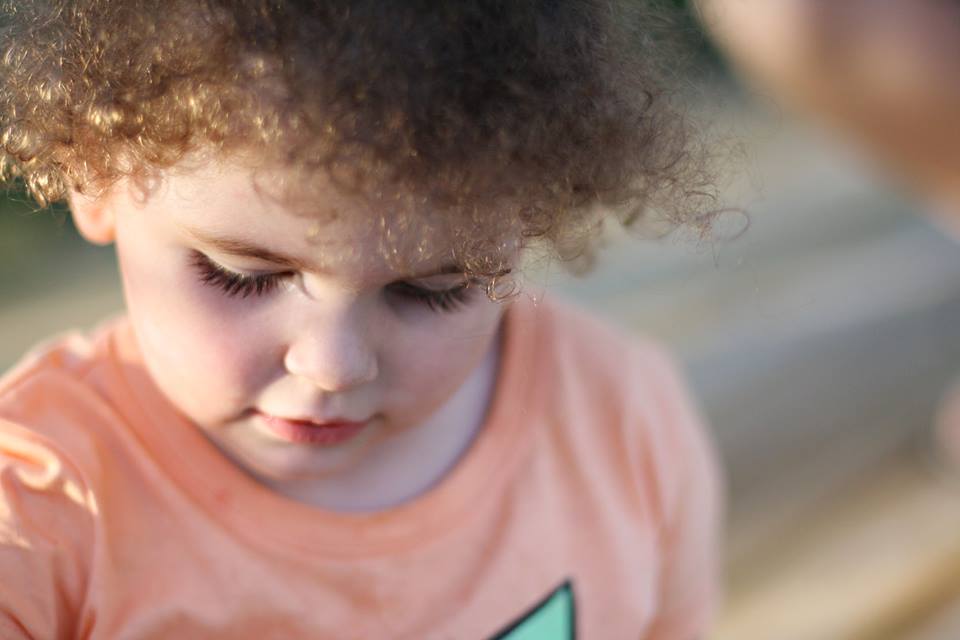I have a child who does not like to greet people. A basic “hello” is kind of an important social skill for getting along with humanity, so it’s something we’re working on– and have been working on since he was the age when most kids started to wave. It has come to my attention in some conversations with friends that maybe we aren’t alone in this struggle.
I know there are reasons why this seemingly simple task can be overwhelming for my child. Different children may struggle for different reasons and many of us are actively dealing with both the underlying cause of these struggles and their outward manifestations. As my child gets older we have even been able to talk about the reasons why a simple greeting feels like such a big deal to him. He can now articulate his nervous feelings and we can talk about ways to help him cope.

All photos by Rebecca Tredway Photography
If you are parenting a child who struggles with some of these basic social skills, I’d encourage you to recruit help in figuring out what’s going on for your child. Many of us have already sought help and dealing with these issues has become part of our world. Although we know we didn’t cause these issues, we can experience guilt when our child seems to shrug off relatives we know they love and doesn’t respond to social cues the way other kids do.
There are adults who have become allies in the process as we teach our child how to handle these interactions. I have been inspired by their gentle pursuit of my child and I’ve learned from watching their playful kindness. So for those of you who are interacting with kids who don’t say “hi” I just wanted to give you some clues to help solve the mystery of our children based on what I’ve seen work for my kids and what I’ve learned to do for other people’s children. (*I also ran this piece by a friend who is a mom of a child who struggles with language and social interactions, and I cleared it with a friend who is a Speech-Language Pathologist, M.Ed, CCC-SLP.)
Side-by-side interactions work well. If you can find an excuse to be next to this child and take away the intimidation of eye-contact some of our kids experience, that can be a big help. Get down on their level. Color next to them. Talk to them while you eat side-by-side. Play dominoes together. Find excuses to talk during times when eye-contact isn’t necessary.
Don’t assume they don’t hear you. I know it’s frustrating when you say “hello” to a child and they seem to ignore you. But that doesn’t mean that they don’t notice your effort. Sometimes having a one-sided conversation is just what they need to realize you care about them and it will make them feel like opening up in the future. (For example, “Hey there! Are you having a good school year? I bet you’ve got a great teacher this year.”) This may feel like a totally acceptable conversation to them even though they did not actively participate. It has been a joy to see people have these kinds of conversations with my child and then one day my child responds in full sentences with details when he finally feels comfortable enough to participate.
Touch can be a help. I know this may not be a one-size-fits-all solution, but sometimes a firm pat can communicate love to a child that struggles with language skills. You can ask for a high-five or give a shoulder squeeze or maybe even arm wrestle. I can see my child light up when a trusted adult pats his back, says, “I like you” and leaves it at that. The relief at not being required to talk can allow him to really absorb your interaction. Obviously, for some kids touch will not be appreciated, so you may want to ask first or offer something like a handshake where they can engage if they feel comfortable.
Give them time. There are times to have the one-sided conversation and there are times to ask them a question and then just let it sit there until they’re ready. It may take them some time to pull an answer together. They may need A LOT of time, so you can tell them you’re going to check back in with them later. (For example: “Is there a favorite thing you like to do in PE this year?. . . You think about it and I’m going to come back later and see what you came up with!”) This gives them time to think about an answer and time for those of us who help them deal with their social struggles to assist them. Know that just because they don’t answer you right away doesn’t mean they don’t have an answer or don’t want to answer.
Keep talking to them. If this child doesn’t respond to you at first, don’t give up. He knows you’re talking to him and he’ll know if you stop. While he may seem to totally tune you out, at home we may hear all about what you said and how he knows you are fond of him. We may know that they WANT to ask you a question or they WANT to tell you a joke, but they struggle in the moment. If you can keep giving them that chance, the day may just come.
Affirm their parents. We know that the child who has great social skills is going to have an easy time accumulating supportive adults. The child who seems to ignore everyone who tries to interact with her is going to get isolated and ignored. It is such a blessing to parents when you can tell us that you see the child underneath the struggles. If you can let us know that you care about this child, ask for our input about how to relate to them, and withhold judgement about what kind of parents we must be to have such a “rude” child, that would be so appreciated. We spend lots of our time working on these skills with our kids and when we see them fail, we hurt. We may deal with that hurt by defending our child or by making excuses for them. If you can affirm to us that it’s okay, we’ll be forever grateful.
Don’t take it personally. We know it’s easy to feel personally offended when a child seems to intentionally ignore you. It’s easy to feel like they don’t care about you, but the opposite may be true. They may care so much that it’s difficult for them to look at your eyes or pull the words together to respond. It may feel like pressure, not like the casual interaction you want it to be. If you can still love the child who doesn’t seem to love you back, you may just give them the freedom they need to interact with you in the future.
The difficulty about teaching your child social skills is that you really can’t just do it in the privacy of your own home. You can practice these skills, but it’s the crowded church lobby or the high-pressure Meet the Teacher Night or the family reunion in a new environment where our kids have to put the principles we’ve taught them into action. Those can be high-stress situations for anyone, but especially for someone who knows they struggle to meet social norms. If you can give us grace as we deal with these situations and you can continue to love us and our kids as we work through it, you can be part of the important support structure our family needs.


11 Comments
Leave a reply →